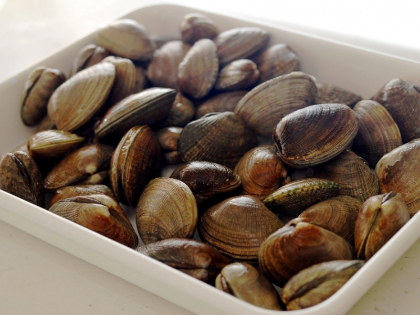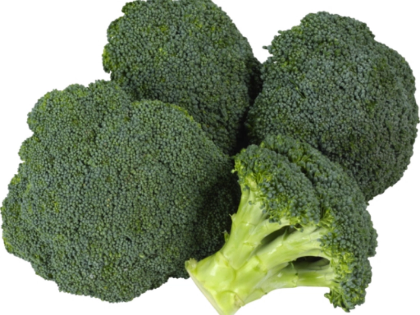How Nuts Can Help You Meet Your Daily Nutrient Needs
Considered as a powerhouse of nutrition, nuts provide a broad spectrum of vital elements that might enable people to satisfy their daily nutritional needs. Packed with good fats, protein, fibre, vitamins, and minerals, nuts are a flexible food that fits rather well in many dishes and snacks. This post looks at how various kinds of nuts might meet your dietary requirements and offers doable ideas for integrating them into your diet.
1. Nutrient Density among Nuts
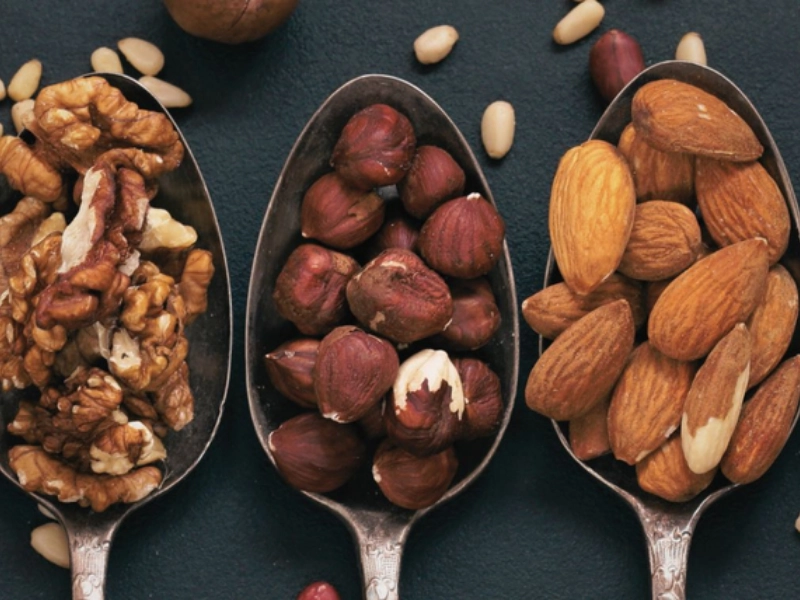
2. Good Fats and Cardiac Function
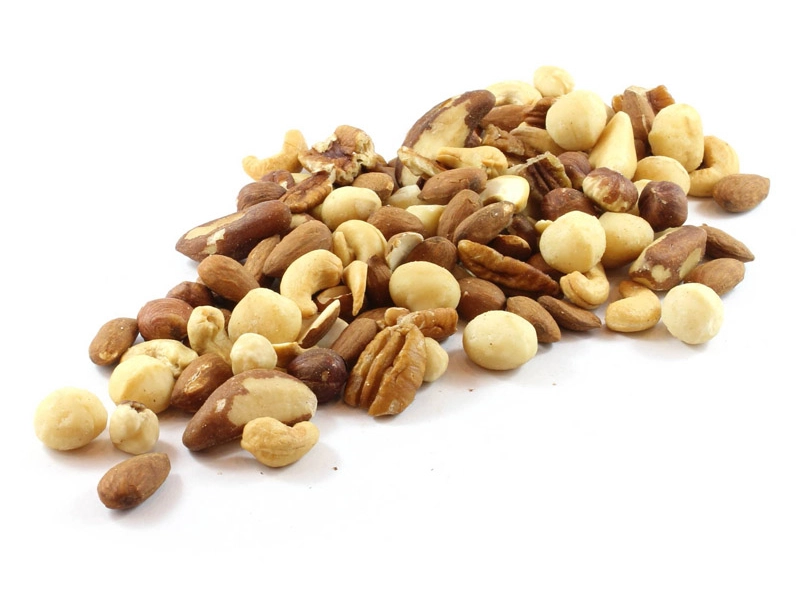 The good fat level of nuts is one of their main qualities. Mostly unsaturated fats—which are good for heart health—make up nuts. Eating these healthy fats can raise good cholesterol levels (HDL) and aid in lowering bad cholesterol levels (LDL). Reducing the risk of heart disease, a main cause of death globally, depends on this balance.
For instance, walnuts and almonds are especially said to be heart-healthy. Walnuts are high in omega-3 fatty acids, which help lower inflammation and guard against heart disease; almonds provide monounsaturated fats that assist in enhancing lipid profiles. Including nuts in your daily diet will help you to be proactive in preserving a healthy heart, and so they are a necessary part of a balanced diet.
The good fat level of nuts is one of their main qualities. Mostly unsaturated fats—which are good for heart health—make up nuts. Eating these healthy fats can raise good cholesterol levels (HDL) and aid in lowering bad cholesterol levels (LDL). Reducing the risk of heart disease, a main cause of death globally, depends on this balance.
For instance, walnuts and almonds are especially said to be heart-healthy. Walnuts are high in omega-3 fatty acids, which help lower inflammation and guard against heart disease; almonds provide monounsaturated fats that assist in enhancing lipid profiles. Including nuts in your daily diet will help you to be proactive in preserving a healthy heart, and so they are a necessary part of a balanced diet.
3. Powerhouses of Protein
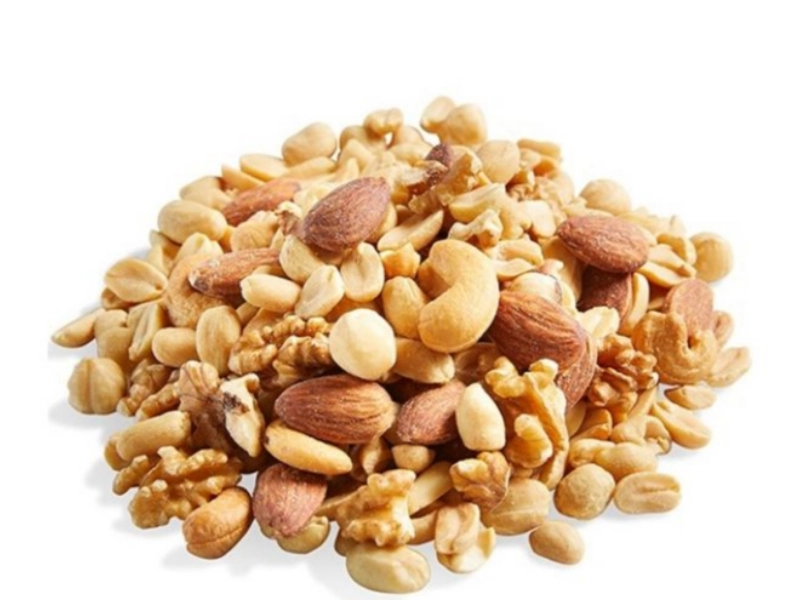 A great source of plant-based protein, nuts are therefore a great supplement to diets including vegetarian and vegan ones. Building and healing tissues, generating hormones and enzymes, and sustaining general growth and development all depend on protein. Including nuts in meals will enable people to satisfy their daily protein requirements without depending just on animal sources.
For example, a serving of almonds gives roughly 6 grams of protein, but peanuts have about 7 grams. Those trying to boost their protein intake without ingesting too many calories may find this protein content especially helpful. Including nuts in salads, yoghurt, or smoothies will increase protein levels and improve satiety, thus facilitating the maintenance of a good weight.
A great source of plant-based protein, nuts are therefore a great supplement to diets including vegetarian and vegan ones. Building and healing tissues, generating hormones and enzymes, and sustaining general growth and development all depend on protein. Including nuts in meals will enable people to satisfy their daily protein requirements without depending just on animal sources.
For example, a serving of almonds gives roughly 6 grams of protein, but peanuts have about 7 grams. Those trying to boost their protein intake without ingesting too many calories may find this protein content especially helpful. Including nuts in salads, yoghurt, or smoothies will increase protein levels and improve satiety, thus facilitating the maintenance of a good weight.
4. Fibre for Gastronomic Comfort
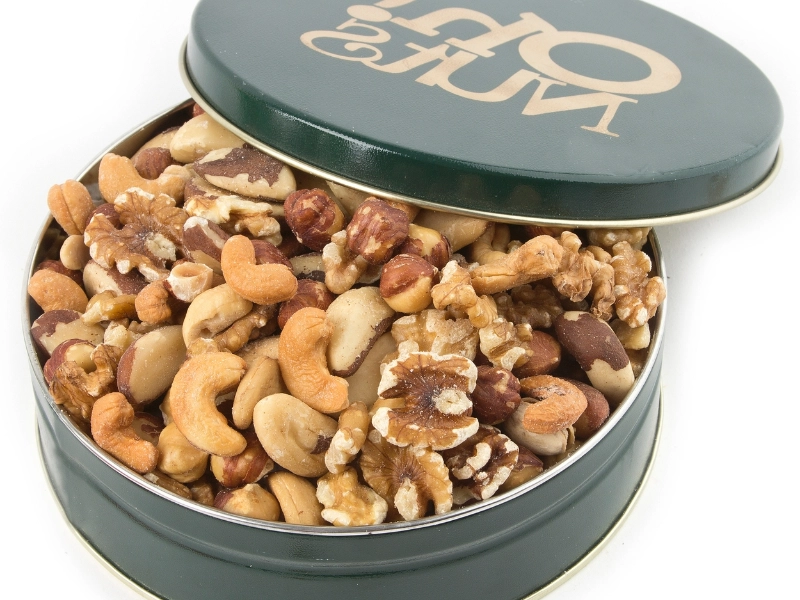 The great fibre content of nuts also adds another important advantage. For digestive health, fibre is absolutely essential; it helps control bowel motions and avoid constriction. A diet high in fibre can help support a good gut flora, which is connected to enhanced immune system and general well-being.
Particularly heavy in fibre are nuts such as almonds and pistachios. About 3.5 grams of fibre in one serving of almonds help to meet the advised daily requirement. Including foods high in fibre, such as nuts, will help you feel full for longer, lowering the possibility of overindulging and helping weight control. Furthermore linked to a reduced incidence of chronic diseases, including type 2 diabetes and heart disease, is a diet high in fibre.
The great fibre content of nuts also adds another important advantage. For digestive health, fibre is absolutely essential; it helps control bowel motions and avoid constriction. A diet high in fibre can help support a good gut flora, which is connected to enhanced immune system and general well-being.
Particularly heavy in fibre are nuts such as almonds and pistachios. About 3.5 grams of fibre in one serving of almonds help to meet the advised daily requirement. Including foods high in fibre, such as nuts, will help you feel full for longer, lowering the possibility of overindulging and helping weight control. Furthermore linked to a reduced incidence of chronic diseases, including type 2 diabetes and heart disease, is a diet high in fibre.
5. Minerals and Vitamins Abounding
Not only do nuts provide good proteins and lipids, but they also abound in vital vitamins and minerals. For instance, Brazil nuts are a great source of selenium, a mineral very important for the immune system and metabolism. Likewise, cashews are high in magnesium, which is vital for muscle operation and energy generation. Apart from other necessary minerals, nuts contain B vitamins, which support energy metabolism, and vitamin E, which functions as an antioxidant. Including a range of nuts in your diet will help you to readily satisfy your daily mineral and vitamin requirements, thus boosting general health and well-being.
6. Simple Ways to Incorporate Nuts into Your Diet
Including nuts in your regular diet is easy and will improve taste and nutrition. Here are some simple ways you may include nuts in your diet: **Snacks**: As a quick and filling snack, savour a handful of mixed nuts. Combining seeds with dried fruits and nuts will also produce your own trail mix. For additional crunch and nutrients, toss chopped nuts into your morning muesli or yoghurt. Toss nuts into salads to add a wonderful texture and increase nutritional worth. To improve taste and nutrition, **baking** calls for nuts in recipes such as muffins or granola bars. For a creamy mouthfeel and extra protein, blend nut butter into smoothies. Finding fun ways to include nuts in your meals will help you to readily satisfy your daily nutritional requirements and enjoy great tastes.
7. Factors Regarding Nut Intake
Although nuts have many health advantages, their calorie density makes moderation of them vital. If not counterbalanced with physical exercise, overindulging in nuts might result in too high calorie consumption, which could help explain weight increase. Usually one ounce, or a little handful, a normal serving size offers enough nutrients without going overboard. People who have nut allergies should also avoid nuts completely since they might induce very strong allergic reactions. Choosing unsalted and unflavoured types is advised for individuals without allergies in order to cut extra sugars and salts. Maintaining a balanced diet and enjoying the several health advantages nuts provide depends on being aware of their quantities and kinds of consumption.


